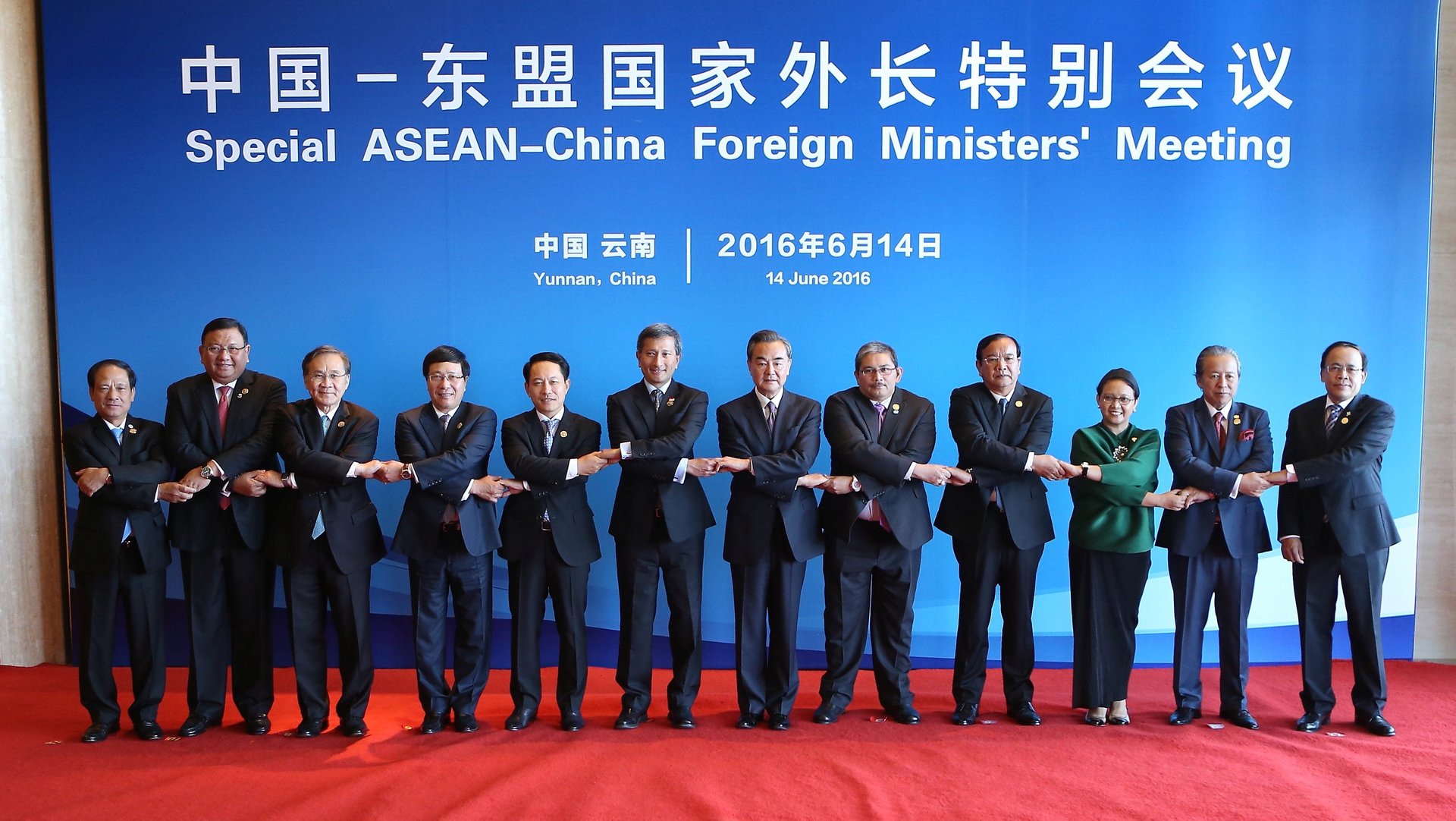Read: ASEAN’s statement about the South China Sea that was reportedly issued then retracted
The Association of Southeast Asian Nations appeared to officially express deep concern over escalating tensions in the South China Sea in a statement yesterday (June 14). The foreign ministers of member nations and China had gathered for a special meeting near the southern Chinese city of Kunming.


The Association of Southeast Asian Nations appeared to officially express deep concern over escalating tensions in the South China Sea in a statement yesterday (June 14). The foreign ministers of member nations and China had gathered for a special meeting near the southern Chinese city of Kunming.
Then, however, the organization seemed to reverse course. “We have to retract the media statement by the ASEAN foreign ministers… as there are urgent amendments to be made,” said a spokeswoman with the Malaysian foreign ministry, which had issued the statement.
The retracted statement warned that recent actions in the disputed sea had the potential to undermine peace. The AFP reports it included the following:
“We expressed our serious concerns over recent and ongoing developments, which have eroded trust and confidence, increased tensions and which may have the potential to undermine peace, security and stability in the South China Sea…
We emphasized the importance of non-militarization and self-restraint in the conduct of all activities, including land reclamation, which may raise tensions in the South China Sea…
We articulated ASEAN’s commitment to maintaining and promoting peace, security and stability in the region, as well as to the peaceful resolution of disputes…
[This includes] full respect for legal and diplomatic processes, without resorting to the threat or use of force, in accordance with universally recognized principles of international law, including the UNCLOS (United Nations Convention on the Law of the Sea) and the UN Charter.”
It added a particularly damning sentence, Bloomberg reports:
But we also cannot ignore what is happening in the South China Sea as it is an important issue in the relations and cooperation between ASEAN and China.
China has been militarizing and island-building in the strategic waterway to bolster its claim to most of the sea, despite competing claims from various members of the association, including Vietnam, Malaysia, Brunei, and the Philippines.
China’s claim to most of the resource-rich sea is likely to be undermined by a ruling, expected in the coming weeks, from an international tribunal, the Permanent Court of Arbitration in The Hague. The Philippines opened a case with the tribunal in 2013 to challenge China’s claims. Beijing has refused to recognize the tribunal’s authority in the matter.
Instead China has been on something of a PR and diplomatic blitz in recent months, arguing that matters involving the sea should be resolved by the nations directly involved, in individual negotiations rather than through tribunals or with groups like ASEAN. Of course, because China dwarfs its neighbors economically and militarily, such an approach would work very much in its favor.
Beijing has been encouraging the Philippines, and its new president-elect Rodrigo Duterte, to drop the case and hold bilateral talks. It’s also been assembling allies willing to agree with its position on the tribunal and resolving disputes, among them Gambia, Russia, and, awkwardly, Cambodia. The latter nation is an ASEAN member that relies heavily on China for military and economic aid.
ASEAN is set up in such a way that it issues joint statements, meaning all member nations are behind the message. But the South China Sea issue has revealed the shortcomings of this set-up, and fault lines in the organization.
In an email to Quartz, the ASEAN secretariat said it “has not received any statement on this issue to be circulated.”